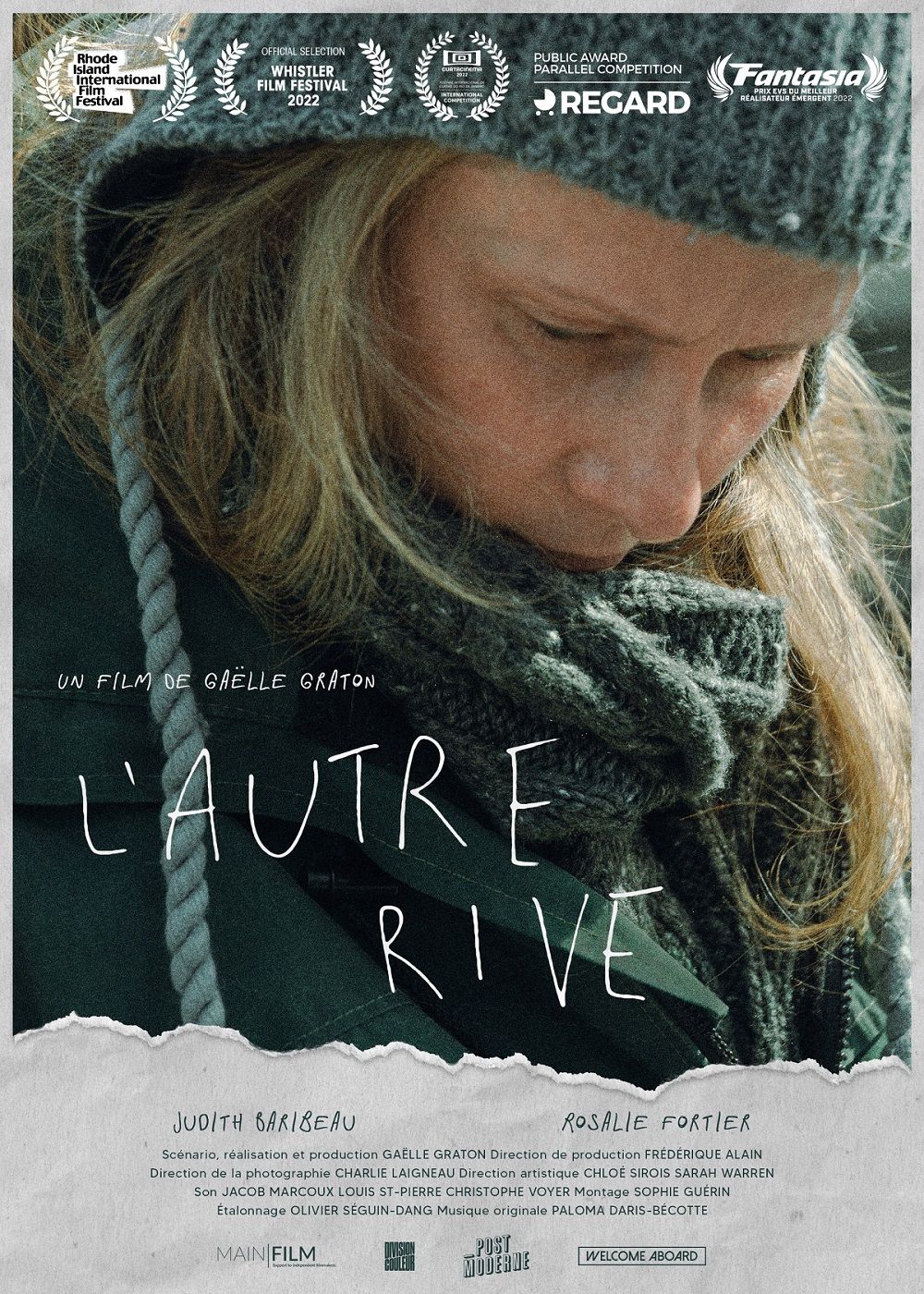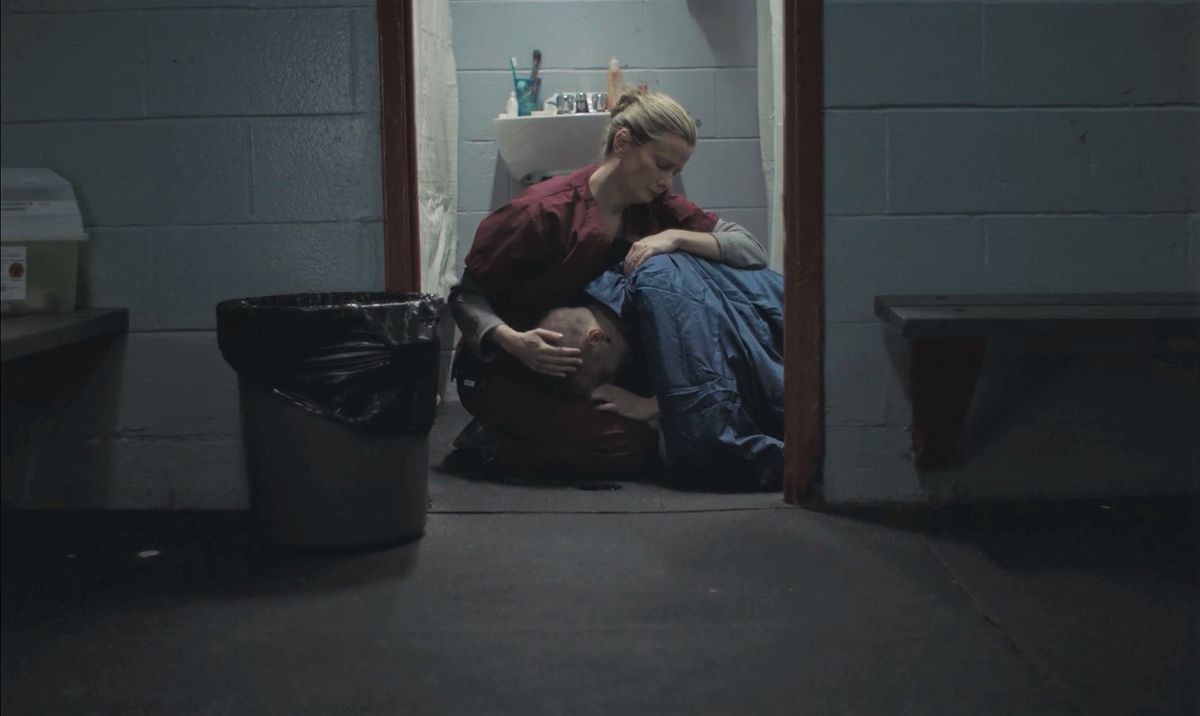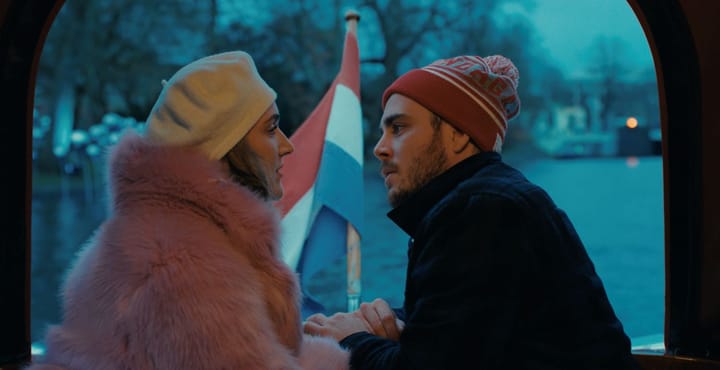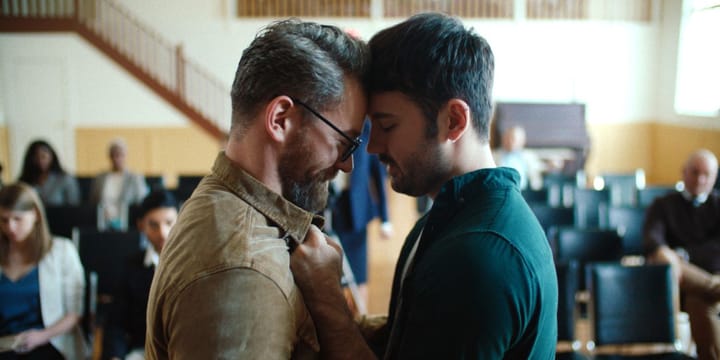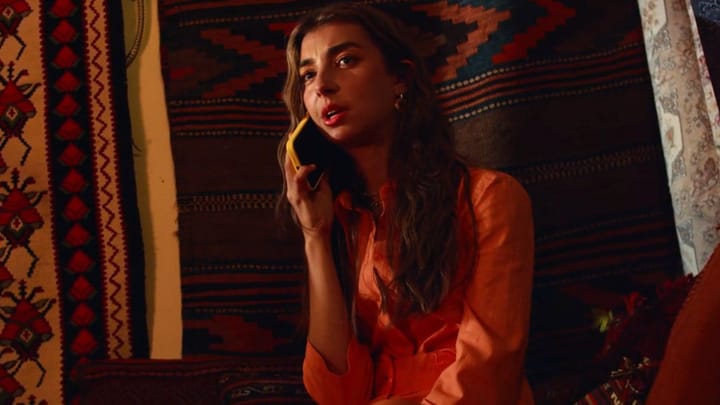An emergency shelter worker and a young homeless woman form a special bond in L’autre rive (A Shore Away). Filmmaker Gaëlle Graton discusses one of Canada’s biggest humanitarian crises and the inspiration for her new social drama.
L’autre rive (A Shore Away) takes us into the day-to-day life of a social worker (played by Judith Baribeau) and the connection she develops with a young woman (Rosalie Fortier) she interacts with while working at a Montreal emergency community shelter.
The film offers a look at survival on the periphery of society, the challenges of supporting those in need and the power of a simple act of kindness.
First-time writer-director Gaëlle Graton says she was moved to make the film by a deep passion for social issues and a desire to draw attention to the lack of low-income housing options plaguing many big cities.
“I made this film to raise awareness about homelessness as a social reality that is often overlooked by the general population in Montreal, and because the media representations of this marginalized population are often very biased and degrading,” she says.
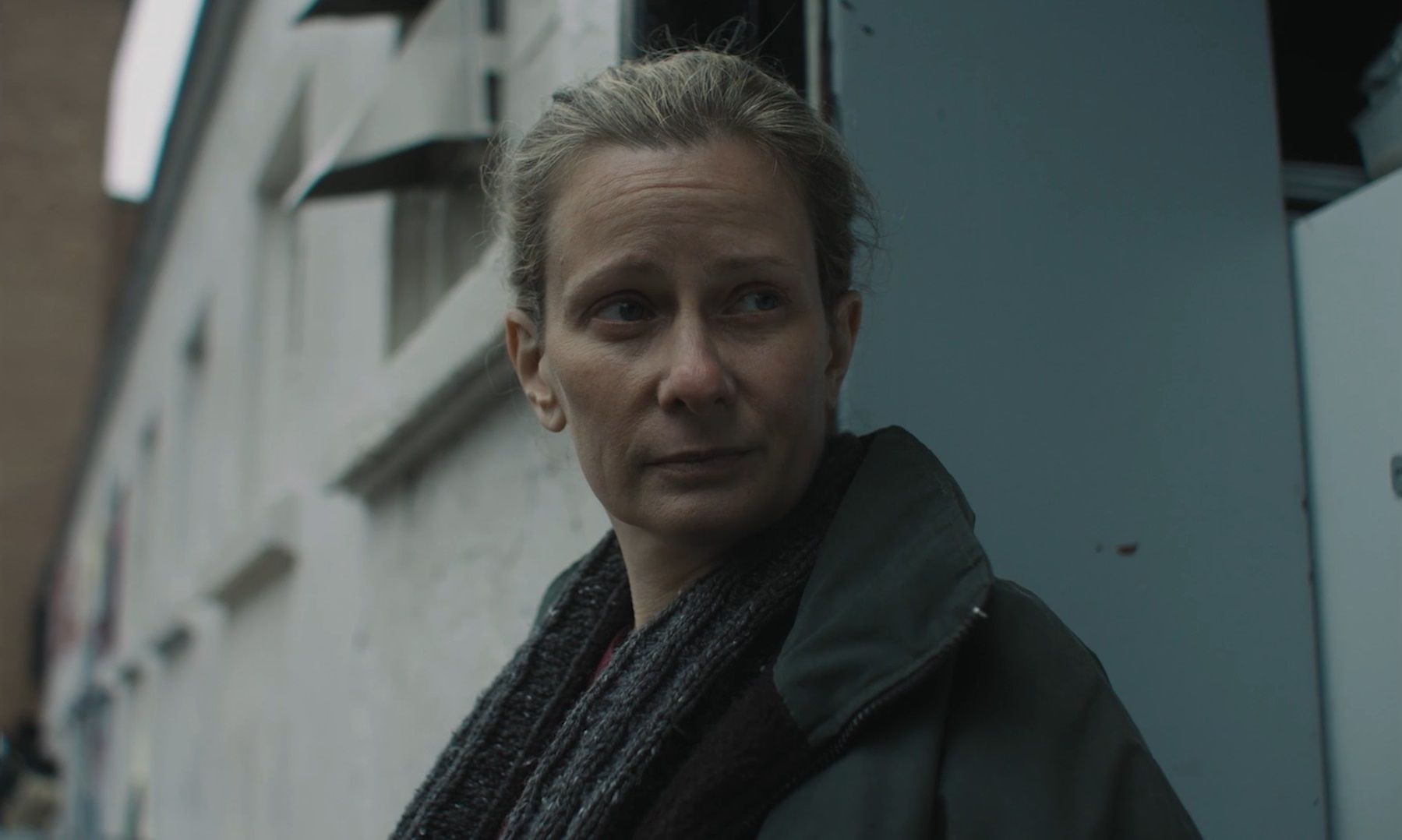
The film was inspired by a real-life encounter Graton had with the residents of a homeless encampment and a subsquent visit she made to a local shelter. The experience, she says, brought her face-to-face with the struggles of life on the streets and convinced her there was a story that had to be told.
“I was utterly obsessed by the fear of not getting it right. Crafting a fiction film about homelessness is a slippery slope in that it can easily become a nuisance to homeless people,” Graton says. “It can reproduce false representations of them and participate in their demonization and marginalization. This fear made me aware of my social and political responsibility as a filmmaker.”
“I tried to make place for the viewers to integrate their own reflections into the film and to hopefully have their pre-existing notions about homeless people challenged.”
She continues that, while the film touches on some of the ethical issues surrounding homelessness, she wanted to ensure that the work didn’t come off as overlty preachy.
“It was important for me not to be moralistic in my filmmaking approach. Throughout the process, I was more interested in tracking the characters’ emotional journey rather than creating a teaching moment out of their experience,” she says. “I tried to make space for the viewers to integrate their own reflections into the film and to hopefully have their pre-existing notions about homeless people challenged.”
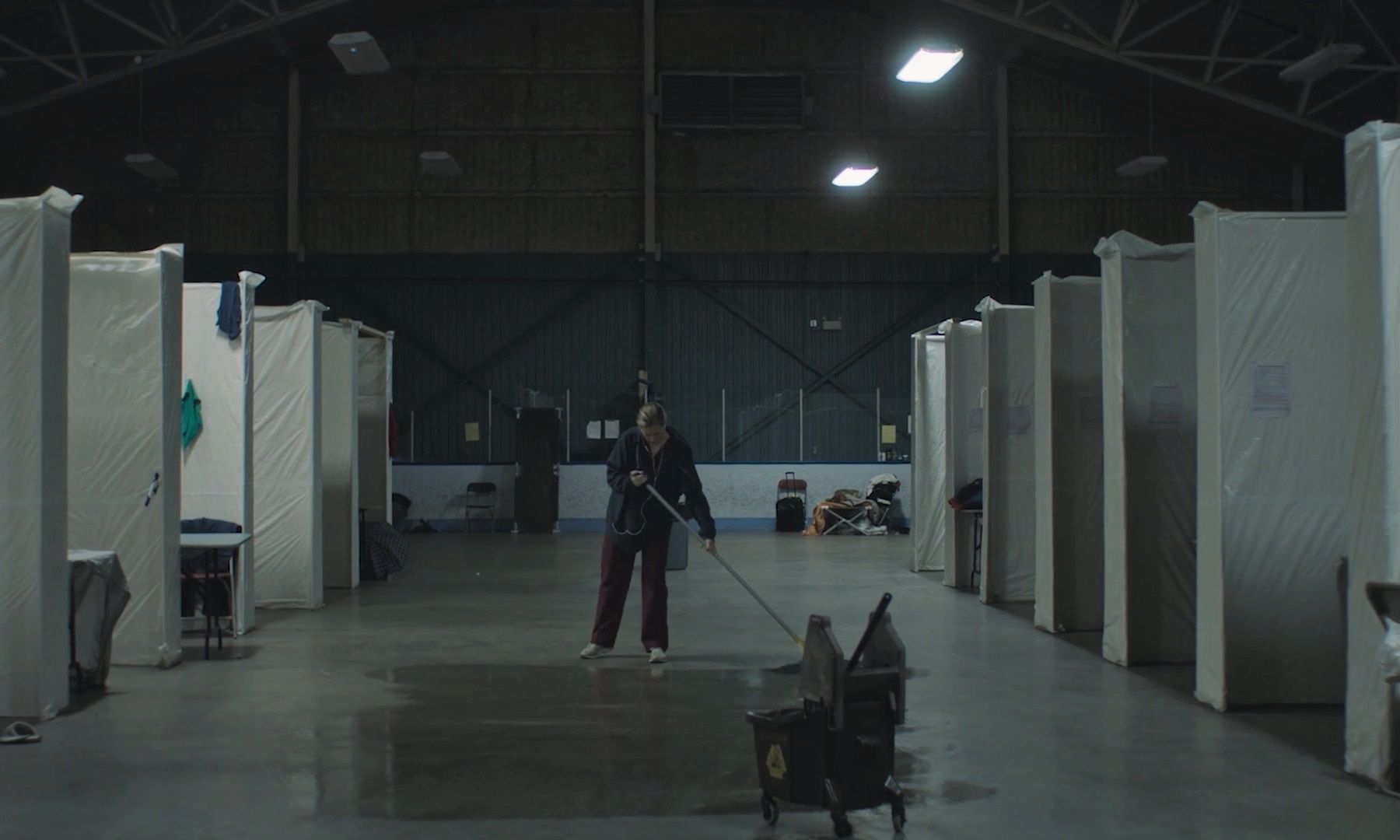
The film was produced on a budget of $12,000 (CAD) (almost two-thirds of which was crowdfunded), and received an additional boost in the form of a free five-day equipment loan from an organization supporting independent filmmakers.
“The beauty of it all is that we had the chance to shoot in the very shelter I visited and did my research at. We made a lot of effort to preserve the look of the place and to craft an authentic world that the audience could really dive into,” Graton says. “And I feel like it is precisely because nothing is forced that the film has the power to create new connections and introduce new conversations.”
“I feel like it is precisely because nothing is forced that the film has the power to create new connections and introduce new conversations.”
She also notes that the project would not have been possible without the generous support of her family, friends and peers, as well as many strangers throughout the process.
“Working on this film was very humbling. I appreciated every moment spent in prep, on set and in post with my cast and crew,” she says. They helped me understand my craft a bit more and showed me an incredible amount of trust throughout the whole process. I’m grateful for all of them, and I wish to renew these collaborations on my next project.”
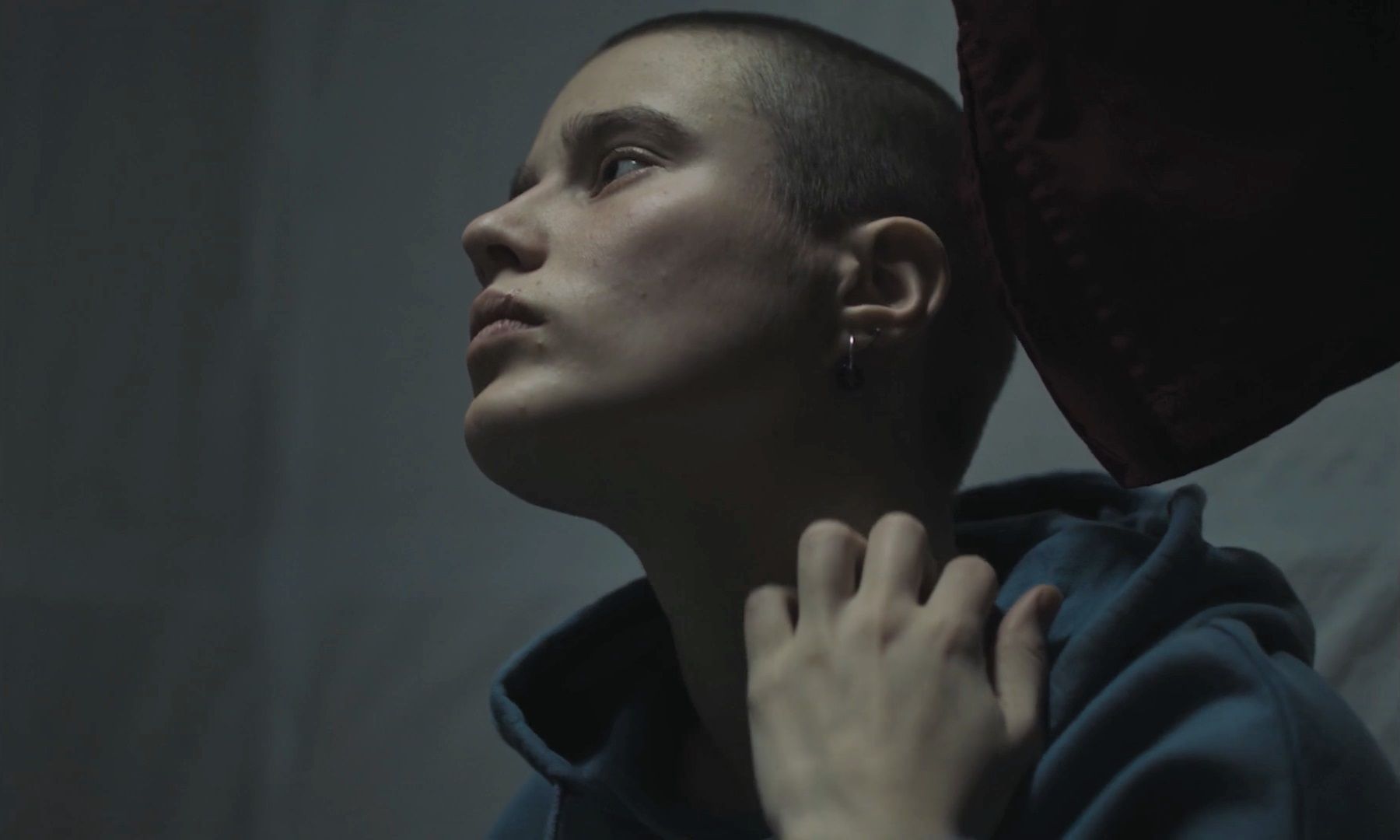
L’autre rive has already played to audiences at dozens of festivals across North America and Europe, picking up numerous accolades along the way (including the 2023 Lindalee Tracey Award for Graton at Hot Docs and a Best Actress Award for Fortier at the Vaughan International Film Festival), and Graton says the response from those who have seen it has been overwhelmingly positive.
“I hope the film will make people realize that these men and women living on the streets are our co-citizens. We all have to reach out to them with consideration, a greeting or a smile,” Graton says. “If L’autre rive can highlight our collective responsibility to support these people, I’d be extremely happy about it.”
She adds that she believes the film will help audiences better understand the myriad of factors affecting homelessness and see that it is “not a lifestyle choice one makes.”
“I also hope it manages to raise awareness about the complex realities of girls and women living on the streets being even more disenfranchised,” she says. “I’m optimistic that the film can change people’s perceptions and spark discussions about this ongoing humanitarian crisis.”
Follow the film on Instagram here (@lautre_rive_shortfilm) or connect with Gaëlle Graton here (@gaellegraton).
